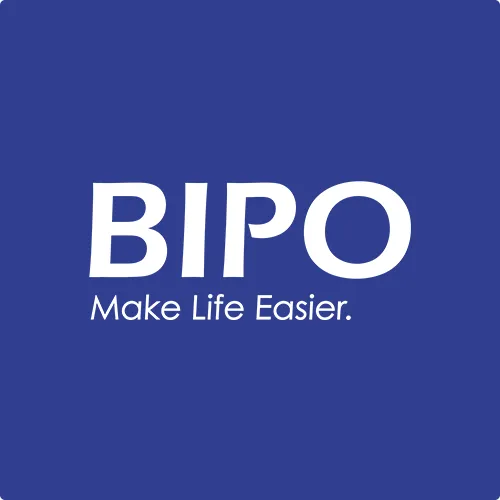The modern workplace is evolving, and with it, the expectations and needs of employees. Flexible work arrangements (FWAs) are no longer a perk but a business priority. Balancing employee needs with productivity goals benefits both employees and employers. As businesses navigate and adapt to changes in today’s workplace landscape, understanding and implementing effective FWA strategies is crucial for attracting, retaining, and engaging top talent.
The Impact of FWAs on Employers and Employees
Flexible work arrangements offer a multitude of benefits for both employers and employees.
For employers, FWAs can lead to:
- Improved employee morale and engagement
- Increased productivity and efficiency
- Enhanced talent attraction and retention
- Reduced overhead costs
Employees also reap significant benefits from FWAs, such as:
- Better work-life balance
- Reduced commuting time and costs
- Greater flexibility to manage personal commitments
- Increased job satisfaction
However, FWAs also present challenges, such as potential communication barriers and the need to maintain team cohesion. Addressing these challenges requires clear communication, effective collaboration tools, and a supportive workplace culture.
Common Types of FWAs

Source: Freepik
Flexible work arrangements redefine the traditional 9-to-5, in-office model, offering a variety of alternative ways to work. In Singapore, FWAs are broadly categorised into 3 main types – time-based FWAs, which allow employees to have flexible working hours, location-based FWAs, which allow employees to work from different locations, and workload-based FWAs, which involve variations in the amount of work employees complete.
The various types of FWAs offer a range of benefits tailored to different needs, creating a more adaptable, satisfied, and productive workforce.
Common types of FWAs within each category include:
Time-based FWAs
- Flexi-time: Allows employees to set their own start and finish times while working the same total hours.
- Compressed Work Schedule: Employees complete the same total hours over fewer days.
- Staggered Hours: Employees adjust their start and end times to better fit personal commitments.
Time-based FWAs help employees balance their work and personal lives, reducing stress and increasing job satisfaction.
Location-based FWAs
- Telecommuting: Employees work from home or other locations, using technology to stay connected with their teams and clients.
Location-based FWAs reduce commuting time and costs, offering a more flexible work environment that can boost productivity.
Workload-based FWAs
- Part-time Work: Employees work fewer hours, typically not exceeding 35 hours per week.
- Job Sharing: Two or more part-time employees share the responsibilities of one full-time position.
Workload-based FWAs provide a lighter workload for those with additional commitments outside of work, allowing employers to retain valuable staff who might otherwise leave the workforce.
Understanding FWAs in Singapore: Tripartite Guidelines and Beyond

Source: jcomp on Freepik
The Tripartite Guidelines on Flexible Work Arrangement Requests (TG-FWAR), effective 1 December 2024, establish a clear process for employees to submit formal requests for FWAs and for employers to evaluate these proposals.
Under these guidelines, employers must evaluate all FWA requests submitted by employees and communicate their decision within two months of receiving the request. Replacing previous recommendations, the guidelines offer improved transparency and understanding for both parties.
To qualify as a formal FWA request, the submission must specify the date, the type of arrangement (including its frequency and duration), the reason for the request, and relevant start and end dates. Requests that do not meet these criteria are not considered formal under the guidelines.
Steps to Submit a Formal FWA Request
- Employee submits a formal FWA request based on the guidelines
- Employer reviews and evaluates the FWA request according to business priorities and needs
- Employer provides the outcome of the FWA request within two months from the submission date
- If the request is denied, the employer is encouraged to discuss possible alternatives with the employee
Roles and Responsibilities of Employees and Employers

Source: tirachardz on Freepik
Employees are encouraged to make FWA requests responsibly, taking into account how their arrangements may affect their performance, as well as any impact on their colleagues and clients.
Once employees have successfully completed their probation period, they are eligible to formally request FWAs under the guidelines.
Employers are encouraged to provide information about FWAs and assess requests objectively, focusing on job-related factors and potential business impacts. Requests should be discussed openly, aiming for mutual agreement. If rejected, decisions must be based on reasonable business grounds, such as cost or job role feasibility, and communicated in writing within two months. Employers should explain rejections and explore alternatives to support workplace harmony.
Leveraging HRMS to Manage FWAs Effectively
HR Management Systems (HRMS) like BIPO HRMS can streamline and enhance the way businesses manage FWAs in Singapore. BIPO HRMS includes automation features that streamline scheduling, ensure compliance, and enhance operational efficiency – all while fostering a more agile and employee-centric workplace.
BIPO HRMS includes features such as:
- Time and attendance tracking: Monitor employee hours accurately, regardless of location or work schedule.
- Leave management and approval workflows: Streamline leave requests and approvals for various FWA scenarios.
- Performance tracking and goal setting: Set clear expectations and track performance for remote and flexible workers.
- Communication and collaboration tools: Foster seamless communication and collaboration among team members, regardless of their work location.
Specifically, BIPO HRMS offers functionalities within the eForm, Personnel Hub, and Letter modules to simplify FWA requests and approvals. This means:
- Employees can easily raise FWA requests through a dedicated form accessible from their HRMS homepage. Once approved, the Leave module allows them to apply for the arrangement, even supporting recurring requests like “Work From Home every Monday.”
- Employers/managers can efficiently approve or reject FWA requests with clear reasons, all within the HRMS. This eliminates manual paperwork and streamlines the tracking of FWA requests.
Embracing FWAs: A Strategic Advantage for Businesses

Source: DC Studio on Freepik
In today’s talent-driven market, adopting flexible work arrangements is the cornerstone of workplace success. Providing employees with FWAs not only meets evolving expectations but also enhances engagement and team performance, ensuring businesses stay competitive and resilient.
BIPO HRMS, with its comprehensive suite of features and multi-country payroll capabilities, empowers businesses to implement and manage FWAs effectively. Explore how BIPO can support your FWA initiatives and help you build a thriving, adaptable workforce.




































